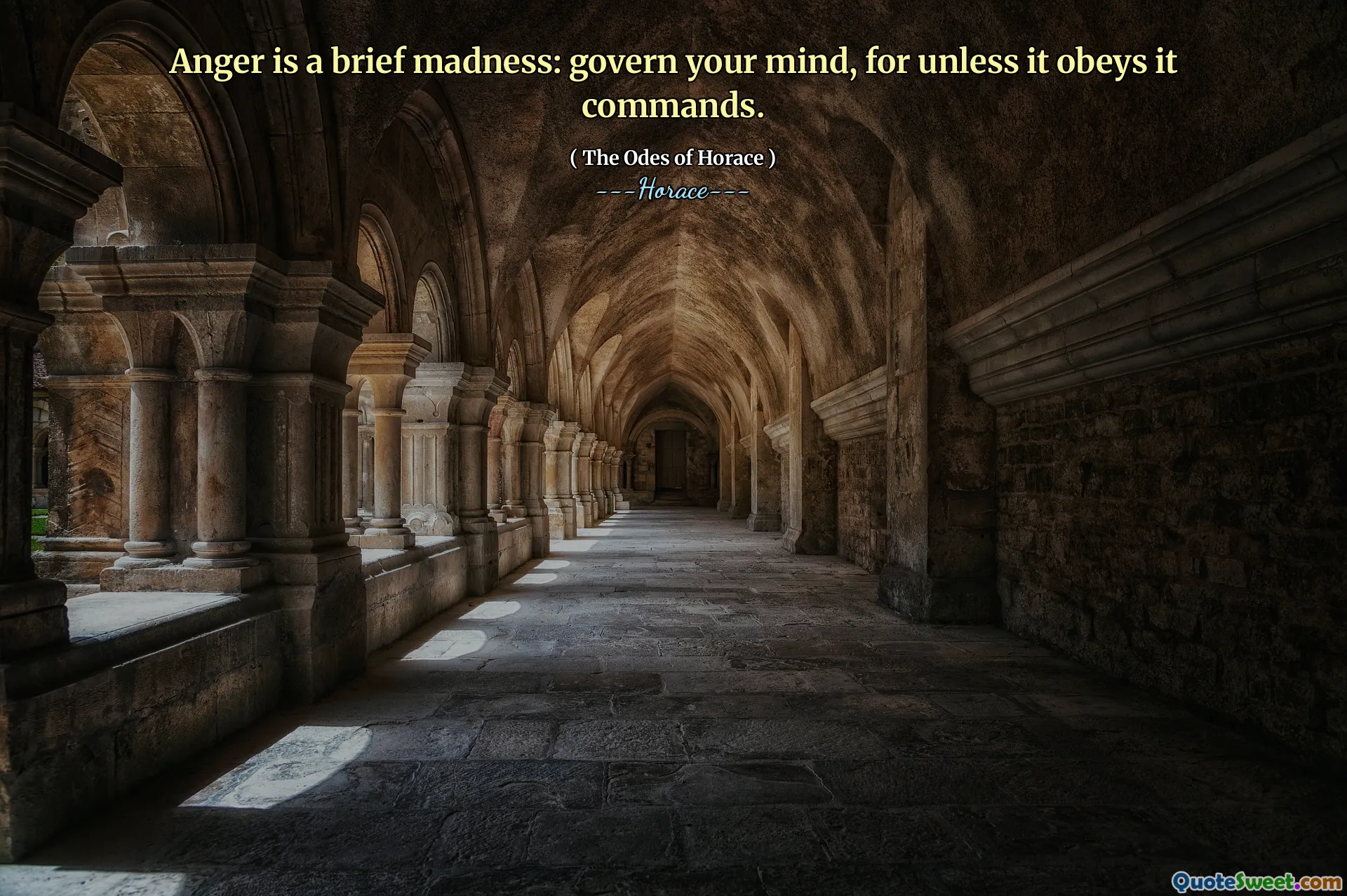
Anger is a brief madness: govern your mind, for unless it obeys it commands.
This quote from Horace encapsulates the fleeting yet intense nature of anger, illustrating it as a temporary madness that can cloud judgment and lead to unwanted outcomes. It serves as a timeless reminder of the importance of self-control and mental discipline in our daily lives. Anger, while a natural human emotion, possesses the power to disrupt reasoning and rational thought if left unchecked. Recognizing its brevity encourages us to step back and gain perspective before reacting impulsively. By governing our minds, we can maintain a sense of calm and make deliberate decisions that align with our long-term values and goals. This idea resonates deeply because it emphasizes that emotional mastery is within our control, and doing so can prevent many conflicts and regrets. Cultivating such discipline is often challenging but necessary for personal growth and harmonious relationships. It also touches upon the philosophy of Stoicism, which advocates for mastering one's passions to achieve inner tranquility. Applying this wisdom requires mindfulness and a conscious effort to pause in moments of anger, allowing the initial impulse to subside, thereby enabling a more thoughtful response. Ultimately, Horace's insight highlights a fundamental aspect of human experience: our emotions can be transient, but how we manage them defines our character. Recognizing anger's temporary nature allows us to avoid being enslaved by it and helps us lead more balanced lives, fostering patience, understanding, and resilience amid life's inevitable stress and provocation.






